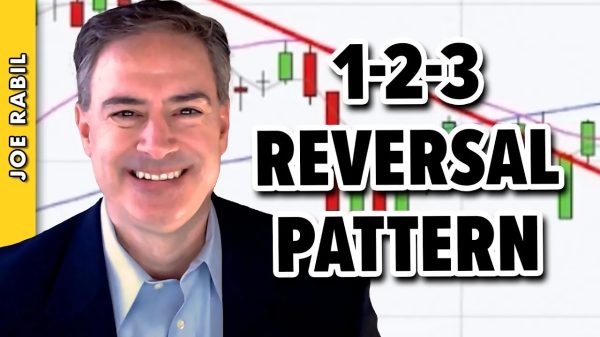Scalia: Rise to Greatness, 1936–1986
by James Rosen
Regnery Publishing, 2023
496 pages
James Rosen, who has written biographies of John Mitchell and Dick Cheney, and was for many years a reporter for Fox News, is a neoconservative and Reagan Republican. He has found an ideal biographical subject in Antonin Scalia, a Reagan Republican, who served for thirty years on the Supreme Court. The volume under review, the first of two, covers the time from Scalia’s birth to his appointment to the court; it concludes with Scalia’s installation ceremony. Rosen has made much more extensive use of Scalia’s papers than two previous biographers, as he never ceases to remind us; and it is easy to see why he has been granted this access. His attitude toward Scalia falls little short of adulation.
The book also conveys, though, a fact about Scalia that one doubts Rosen had in mind in writing the book. Although Scalia made many effective criticisms of the excesses of the Left, in particular of the use of the “living Constitution” doctrine to promote judicial usurpation of power, he was not someone who saw the need for fundamental change in the system by which America is governed. Instead, he wanted to succeed within that system. In this respect, his career contrasts sharply with that of Ron Paul, who although a member of Congress for many years, was always an outsider. Their attitudes toward congressional investigation of the Central Intelligence Agency (CIA) and other intelligence agencies, to be discussed below, illustrate these different political approaches.
In Scalia’s years as a student at Harvard Law School, beginning in 1957, the faculty emphasized judicial restraint. In 1959, when Herbert Wechsler, a professor at Columbia Law School and one of the most influential legal theorists of the time, delivered the Oliver Wendell Holmes Lecture at Harvard, Scalia was attracted to his view that the law consists of a strict body of procedural rules from which judges should not deviate in efforts to achieve various social ends. “In his address, entitled ‘Toward Neutral Principles of Constitutional Law,’ Wechsler argued the benefits of the legal process’s ‘transcending the immediate result that is achieved.’ He asked the audience to consider whether Brown v. Board of Education (1954), the landmark Supreme Court ruling that struck down separate-but-equal treatment in public education for black students, reflected such a process. ‘For me, assuming equal facilities, the question posed by state-enforced segregation is not one of discrimination at all,’ Wechsler said.” (There is some doubt whether Scalia attended the lecture, but it generated great attention and was later published.)
Given his acceptance of judicial restraint and strict adherence to procedure, Scalia viewed with alarm the radical departures from precedent of the Warren court. The “living Constitution” of Justice William Brennan was abhorrent to him. At his confirmation hearing for Supreme Court justice in 1986, in answer to then senator Joseph Biden, Scalia said, “The Constitution is obviously not meant to be evolvable so easily that, in effect, a court of nine judges can treat it as though it is a bring-along-with-me statute and can fill it up with whatever content the current times seem to require. To a large degree, it is intended to be an insulation against the current times, against the positions of the moment that may cause individual liberties to be disregarded, and it has served that function valuably very often. So I would never use the phrase ‘living Constitution.’”
Scalia was much more committed to procedure and restraint than to individual liberty, and this led him to accept many of the incursions of the Leviathan state. One of the chief means by which our freedoms have been trampled on is administrative law, in which unconstitutionally broad legislation delegates to administrative agencies such as the Fair Trade Commission and the Food and Drug Administration the power to enact binding regulations that have the force of law. Scalia was not altogether blind to abuses of delegation, but his primary emphasis in this area was that courts must accept the procedures these agencies use to reach their decisions. Thus, “judicial restraint” became an instrument of judicial tyranny. In one instance, he praised an opinion by the Supreme Court that “rebuked the D.C. Circuit, one rung below the Supreme Court, for having ‘improperly intruded into the agency’s decision-making process.’”
The opinion of the foremost authority on administrative law, Philip Hamburger of Columbia Law School, was entirely different: “In sum, the conventional understanding of administrative law is utterly mistaken. It is wrong on the history and oblivious to the danger. That danger is absolutism: extra-legal, supra-legal, and consolidated power. And the danger matters because administrative power revives this absolutism. The Constitution carefully barred this threat, but constitutional doctrine has since legitimized this dangerous sort of power. It therefore is necessary to go back to basics. Among other things, we should no longer settle for some vague notion of ‘rule of law,’ understood as something that allows the delegation of legislative and judicial powers to administrative agencies. We should demand rule through law and rule under law. Even more fundamentally, we need to reclaim the vocabulary of law: Rather than speak of administrative law, we should speak of administrative power—indeed, of absolute power or more concretely of extra-legal, supra-legal, and consolidated power. Then we at least can begin to recognize the danger.”
There is an even more glaring instance in which Scalia’s views were at odds with individual freedom. He supported the CIA and other spy agencies after the Vietnam War, when revelations of abuses led to demands for congressional oversight and investigation. More generally, he favored a “strong” foreign policy, viewing this area as under the jurisdiction of the executive branch. Nor were his views merely a matter of academic interest. In the period under consideration, Scalia worked for the Office of Legal Counsel in the Justice Department and had a major impact in drafting the presidential responses to congressional efforts to limit executive discretion.
Scalia was especially concerned to counter attempts by Congress and members of the public to use the Freedom of Information Act to ferret out abuses of power. Defending Scalia, Rosen endeavors to counter those “who thought that every proposal that expanded the obligations of the federal government to release the records of the executive branch, no matter how voluminous or highly classified, was . . . wise and urgent, a bulwark against what Arthur Schlesinger, Jr., the former Kennedy adviser, called ‘the imperial presidency.’”
Never mind the abuses: for Scalia, at stake were historical tradition and the separation of powers. “As ‘the president’s lawyer’s lawyer’ at the dawn of an accidental presidency [Gerald Ford’s], it fell to Scalia to defend traditional executive authority precisely when Congress, the courts, and the news media made it the least fashionable. Scalia also thought the CIA was justified in engaging in illegal operations abroad: this too was a matter for the executive branch to decide, though not without some vague limits. For him, the CIA and FBI were not power-mad rogue agencies, but defenders of America.”
Ron Paul, a true champion of freedom, has a different opinion. He wrote last December in protest against the FBI’s use of Twitter to silence dissent: “As we learn more and more from the ‘Twitter Files,’ it is becoming all too obvious that Federal agencies such as the FBI viewed the First Amendment of our Constitution as an annoyance and an impediment.”
Despite his mistakes, Scalia was an impressive figure who showed himself more than a match for the left-wing elites who dominate the major law schools. The intelligence and wit manifest in his opinions made him one of the major jurists in the history of the Supreme Court, and if we must sometimes dissent from this great dissenter, we should not lightly dismiss him.






















